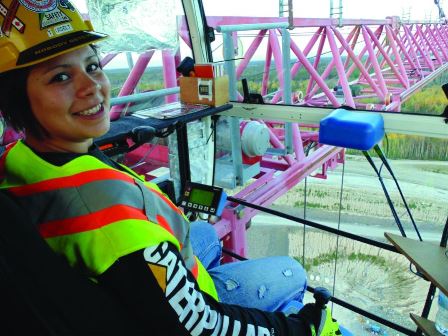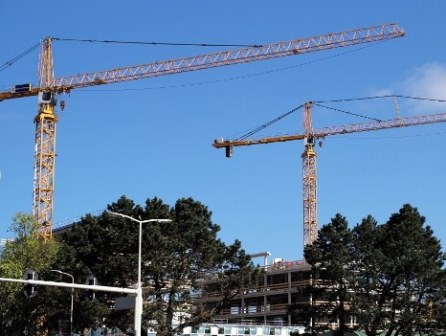The salary of tower crane operators can vary widely based on factors such as location, experience, industry, and employer. Here is a general overview:
- United States:
- Average Salary: The average annual salary for a tower crane operator in the U.S. is typically between $50,000 and $80,000.
- Hourly Wage: On an hourly basis, this translates to roughly $25 to $40 per hour.
- Top Earners: Experienced operators in high-demand areas or working on large-scale projects can earn upwards of $100,000 per year.
- United Kingdom:
- Average Salary: In the UK, tower crane operators usually earn between £30,000 and £50,000 per year.
- Hourly Wage: This equates to about £15 to £25 per hour.
- Top Earners: In some cases, experienced operators can earn over £60,000 annually, particularly in London or other high-demand areas.
- Canada:
- Average Salary: The average salary for tower crane operators in Canada ranges from CAD 50,000 to CAD 80,000 per year.
- Hourly Wage: This is approximately CAD 25 to CAD 40 per hour.
- Top Earners: Experienced operators in major cities or on significant projects can earn over CAD 100,000 per year.
- Australia:
- Average Salary: In Australia, tower crane operators typically make between AUD 60,000 and AUD 100,000 annually.
- Hourly Wage: This corresponds to about AUD 30 to AUD 50 per hour.
- Top Earners: In high-demand areas, especially in major cities, experienced operators can earn significantly more.
These figures can fluctuate based on the demand for construction in a given region, the complexity of the projects, and the economic conditions affecting the construction industry. Unionized workers may also have different wage scales and benefits compared to non-unionized workers.
How much do tower crane operators make per hour in the US?
In the intricate world of construction, tower crane operators hold a pivotal role, maneuvering massive structures and materials high above the ground with precision and skill.
As urban landscapes expand and skyscrapers reach new heights, the demand for proficient tower crane operators continues to rise. But how much do these critical workers earn for their expertise and risk-taking?
Average Hourly Wage
In the United States, the hourly wage for tower crane operators generally ranges from $25 to $40 per hour. This average reflects the significant responsibility these operators bear, as well as the specialized training and certification required to safely and efficiently manage crane operations on bustling construction sites.
Entry-Level Operators
For those just starting in the field, the pay can be lower, typically around $20 to $25 per hour. Entry-level operators are usually in the process of honing their skills and gaining the necessary experience to handle more complex tasks and larger cranes. Training programs and apprenticeships are common pathways into the profession, with wages increasing as proficiency and safety records improve.
Experienced Operators
Operators with several years of experience and a proven track record can expect to earn between $30 and $40 per hour. These seasoned professionals are often entrusted with the most challenging projects, where their expertise can ensure both safety and efficiency. Their deep understanding of crane mechanics, load dynamics, and site logistics make them invaluable on any construction site.
Top Earners
At the upper end of the spectrum, highly experienced tower crane operators, particularly those working on high-profile projects in major metropolitan areas, can earn upwards of $50 per hour.
These top earners are typically involved in large-scale developments, such as skyscrapers, major commercial complexes, and significant infrastructure projects. Their role requires not only advanced operational skills but also the ability to coordinate with multiple teams, navigate complex building codes, and adapt to rapidly changing site conditions.
Factors Influencing Wages
Several factors influence the hourly wages of tower crane operators:
- Geographical Location: Wages can vary significantly based on the location of the job. Operators in cities with high construction activity and cost of living, such as New York, San Francisco, or Chicago, often command higher wages.
- Union Membership: Unionized operators tend to have better wage scales, benefits, and job security compared to their non-unionized counterparts. Unions such as the International Union of Operating Engineers (IUOE) negotiate wages and working conditions on behalf of their members.
- Type of Projects: The complexity and scale of the project also play a crucial role. Operators working on high-rise buildings, major bridges, or other intricate structures are often paid more due to the higher risks and skills involved.
- Experience and Certifications: Advanced certifications and a strong track record of safety and efficiency can significantly boost an operator’s earning potential.
High rise crane operator salary
Tower crane operators are essential to the construction industry, playing a key role in the assembly of our urban landscapes. Their wages reflect the critical nature of their work, the expertise required, and the risks they manage daily.
As the construction industry continues to evolve, the demand for skilled tower crane operators is likely to remain robust, ensuring competitive wages for those willing to take on this challenging yet rewarding profession.

Crane operator salary
How long does it take to become a high-rise crane operator? Who is the highest-paid crane operator?

Tower Cranes
Types of Tower Cranes and specifications
